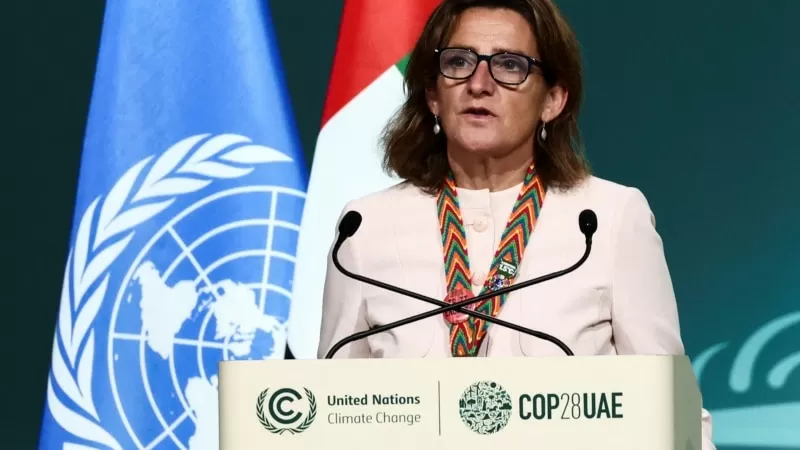Brussels – Teresa Ribera, the newly nominated European antitrust chief, faces a tough task ahead as she prepares to take on Big Tech, banks and airlines. If confirmed, the 55-year-old Spanish socialist will have to juggle these challenges while also considering calls for relaxed rules to help create EU champions.
Ribera, who has been Spain’s Minister for Ecological Transition since 2018, was nominated on Tuesday by European Commission President Ursula von der Leyen for the high-profile antitrust post. Before she can take up her new role, she will need to secure approval from the European Parliament.
As competition commissioner, Ribera will have the authority to approve or reject multi-billion euro mergers, as well as impose significant fines on companies that engage in anti-competitive behavior, such as attempting to stifle smaller rivals or engage in price-fixing.
One of Ribera’s key tasks will be to ensure that major tech players such as Amazon, Apple, Google, Microsoft, and Meta (formerly known as Facebook) comply with the new Digital Markets Act, which aims to rein in their power and promote consumer choice. Companies like Apple, Google, and Meta are already on the radar of outgoing EU antitrust chief Margrethe Vestager for not fully complying with the Act.
Another major challenge for Ribera will be dealing with the increasing use and influence of artificial intelligence (AI) in the tech industry. There are growing concerns about Big Tech leveraging their existing dominance to control the future of AI, and Ribera will need to address this issue carefully.
The new antitrust chief may also take a tough approach when it comes to non-EU state subsidies, following Vestager’s lead in cracking down on unfair state support for foreign companies looking to acquire EU businesses or participate in EU public tenders.
Recent rulings from Europe’s highest court, which upheld the Commission’s $14.5 billion tax order to Apple and its $2.7 billion antitrust fine against Google, may embolden Ribera to take a strong stance against antitrust violations.
Therefore, it is unlikely that she will be in a hurry to relax antitrust rules, despite calls from some, such as Mario Draghi, to promote EU industrial champions to better compete with the US and Chinese markets.
Aside from her role as competition commissioner, Ribera has also been named as Executive Vice President for a clean, just, and competitive energy transition. In this role, she will be responsible for ensuring that Europe meets its green goals.
Ribera’s impressive credentials include negotiating agreements among EU countries last year on emissions limits for trucks and controversial updates to EU power market rules.
With Ribera’s strong track record as a passionate advocate for climate change and her experience in negotiating complex deals, she is in an excellent position to tackle the challenges ahead and drive positive change in the EU’s antitrust policies.
In conclusion, Teresa Ribera’s nomination as the new European antitrust chief is a promising development for Europe. With her expertise and determination, she is well-equipped to take on Big Tech, banks, and airlines while also promoting a fair and competitive market for all. Her appointment is a strong signal of the EU’s commitment to addressing monopolies and promoting a more sustainable and just future for its citizens.


